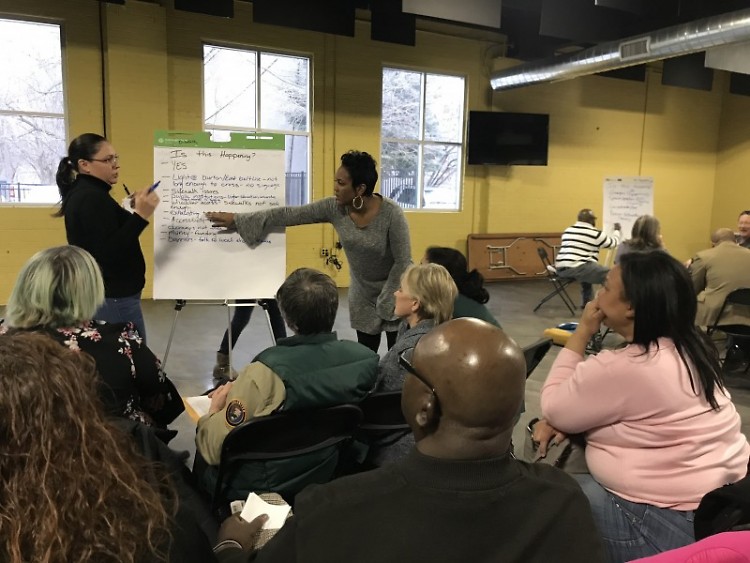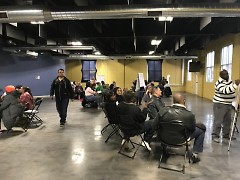On Wednesday, April 18, 2018, more than 50 people attended a town hall at LINC UP to discuss a Civil Rights ordinance proposal for the City of Grand Rapids. Jeremy DeRoo, Executive Director of LINC UP opened the meeting and welcomed attendees.
Lyonel LaGrone, Policy Liaison of LINC UP, who’s spearheaded this proposal then gave a presentation on what the proposal entails, why it’s needed, and how they were looking for community input on the ordinance.
“As a policy liaison here at LINC, my job is to take community concerns and translate them into policy solutions. One of the things I heard when I started talking to people about this is, ‘I have all this experience, every time I go to find a job, they want to send me to a factory, but I do have office experience. I truly believe it’s because of discrimination,'" explained LaGrone.
When asked about which community groups and city departments LINC had spoken to when working on the ordinance, LaGrone and DeRoo detailed the conversations they’d had in preparation for writing the ordinance.
But LaGrone also emphasized the need to move forward with action. “I’m one of those people that left Grand Rapids because of discrimination. So I just don’t have a lot of faith in the traditional system. If you do what you’ve always done, you’ll get what we’ve always got. I think we have to get out of this acquiescing to the status quo. My thing is, we need to protect people. Grand Rapids is still known as one of the most racist cities in the country.”
Near the end of LaGrone’s presentation, community members started asking questions, including wondering how this city law would compare to other cities' laws, why it was necessary if federal law already prohibits discrimination and what the hope was for this new measure.
LaGrone answered, “My hope is that we have real protections and real investigations locally for people who’ve been victimized by discrimination. That it becomes a threat for an employer to discriminate. Right now, most employers are not rattled, at all, if people file a complaint of discrimination. We want people to know if your rights have been violated, that’s something they have to contend with. Also, it is my hope we move forward with establishing a Disability Rights Commission, that we move forward with establishing an ADA coordinator for the city. We have disability issues with sidewalks, with bus routes. I hear these stories over and over again.”
The meeting then broke into five groups, covering topics of concern covered in the ordinance including housing, employment, public accommodations (places like restaurants, parks), disabilities, and an all-emcompasing ‘other’ category. Attendees were asked to participate in the two break-out sessions of most interest to them.
The meeting concluded with each group reading a summary of their conversations. DeRoo noted LINC will be taking the feedback from commmunity members and emailing out a summarization of the evenings comments to attendees.
LaGrone said, "The next step in the process is to incorporate the community's feedback and put it back out to the community for review and getting it to the city commission."
For more information on the proposed ordinance email Lyonel LaGrone at [email protected].
The Rapidian, a program of the 501(c)3 nonprofit Community Media Center, relies on the community’s support to help cover the cost of training reporters and publishing content.
We need your help.
If each of our readers and content creators who values this community platform help support its creation and maintenance, The Rapidian can continue to educate and facilitate a conversation around issues for years to come.
Please support The Rapidian and make a contribution today.


